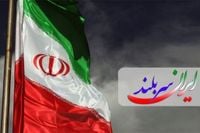On a vibrant Monday evening, October 6, 2025, football fans in Karaj were treated to an electrifying display as the Islamic Republic of Iran's national football team squared off against Mali in a much-anticipated friendly match. The fixture, held in the heart of Karaj city, was not just another test of skill and strategy—it was a showcase of national pride, resilience, and the enduring spirit of Iranian football.
From the outset, the atmosphere around the stadium was charged with excitement. Supporters, draped in the national colors, filled the stands, eager to witness a new chapter in Iran's football journey. The match, part of a series of friendlies between Iran and Mali, drew considerable attention, not just for the football on display but also for the remarkable lineup assembled by the Iranian coaching staff. According to Hamid Nazarkhoyaei, deputy chairman and head of the Iran national football team, the event was meticulously planned to "bring together the best of our national talent and foster international camaraderie on the pitch."
One of the most striking features of the evening was the sheer depth of the Iranian squad. A total of 26 players from the national team took part in the match, each eager to make their mark and impress the coaching staff. The inclusion of notable names such as Nima Rajepour, Sardabir Khabar, and Masoumeh Azimi added an extra layer of intrigue to the contest. These players, recognized for their commitment and technical prowess, were central to Iran's tactical approach against a physically robust Malian side.
The Malian national team, no strangers to international friendlies, arrived in Karaj with a reputation for fast-paced, attacking football. Their presence on Iranian soil underscored the growing footballing ties between the two nations. Coaches and officials from both teams exchanged warm greetings before kickoff, emphasizing the spirit of sportsmanship that underpinned the encounter.
As the referee signaled the start, Iran wasted no time asserting their dominance. The home team moved the ball with confidence, orchestrating attacks from the back and probing Mali's defense with swift, incisive passes. The midfield, marshaled by experienced campaigners, ensured a steady supply of opportunities for the forwards. Nima Rajepour, in particular, was a constant threat, weaving through defenders and testing the Malian goalkeeper with a series of sharp efforts.
Masoumeh Azimi, another standout performer, played a pivotal role in controlling the tempo of the match. Her vision and composure under pressure allowed Iran to maintain possession and dictate the rhythm of play. "We knew Mali would come at us hard, but we stuck to our plan and trusted each other," Azimi reflected after the match, her words echoing the unity that defined Iran's performance.
Mali, for their part, responded with characteristic resilience. Their forwards pressed high, forcing Iran's defenders to stay alert and organized. Several promising counterattacks kept the home fans on edge, but Iran's backline, anchored by a disciplined defensive unit, held firm. The physicality of the Malian side was evident, but Iran's technical finesse and tactical discipline ultimately tipped the balance in their favor.
As the match progressed, the intensity only grew. Substitutions from both benches injected fresh energy into the contest, with each new arrival eager to seize the moment. The Iranian coaching staff rotated their squad, giving valuable minutes to emerging talents and seasoned veterans alike. This depth proved crucial as the hosts continued to press for a breakthrough.
The breakthrough finally came midway through the second half. A well-worked move down the right flank saw Sardabir Khabar deliver a pinpoint cross into the box, where a perfectly timed run met the ball with a thunderous header. The stadium erupted as the ball found the back of the net, sending the Iranian bench into celebrations. The goal was a testament to the team's cohesion and the relentless drive that had characterized their performance throughout the evening.
With the lead secured, Iran grew in confidence. They continued to press forward, creating several more chances and keeping Mali pinned in their own half. The visitors, to their credit, never gave up, launching a series of late attacks in search of an equalizer. However, Iran's defense remained resolute, repelling wave after wave of Malian advances.
As the final whistle approached, the sense of anticipation in the stadium was palpable. Fans cheered every pass, tackle, and save, willing their team to see out the result. When the referee finally blew for full time, there was no doubting the significance of the victory. According to Hamid Nazarkhoyaei, "This win is not just about the scoreline—it's about the spirit of our players and the support of our fans. Every player gave their all for the team and the country."
While official statistics from the match highlighted Iran's dominance in possession and chances created, it was the intangible qualities—teamwork, determination, and resilience—that truly set the hosts apart. The friendly may not have carried the weight of a competitive fixture, but for those in attendance, it was a night to remember.
The victory over Mali serves as a promising sign for Iran's national team as they prepare for future challenges on the international stage. With a blend of experienced stars and emerging talents, the squad appears well-equipped to build on this momentum. The coaching staff, buoyed by the team's performance, will no doubt be looking to fine-tune their tactics and continue developing the next generation of Iranian footballers.
As the players left the field to a standing ovation, the message was clear: Iranian football is on the rise, and the journey has only just begun. The friendly match in Karaj was more than just a game—it was a celebration of national pride, a showcase of talent, and a statement of intent for the future. With the support of their passionate fans and the guidance of dedicated coaches, Iran's national team looks set to make waves in the months and years ahead.

